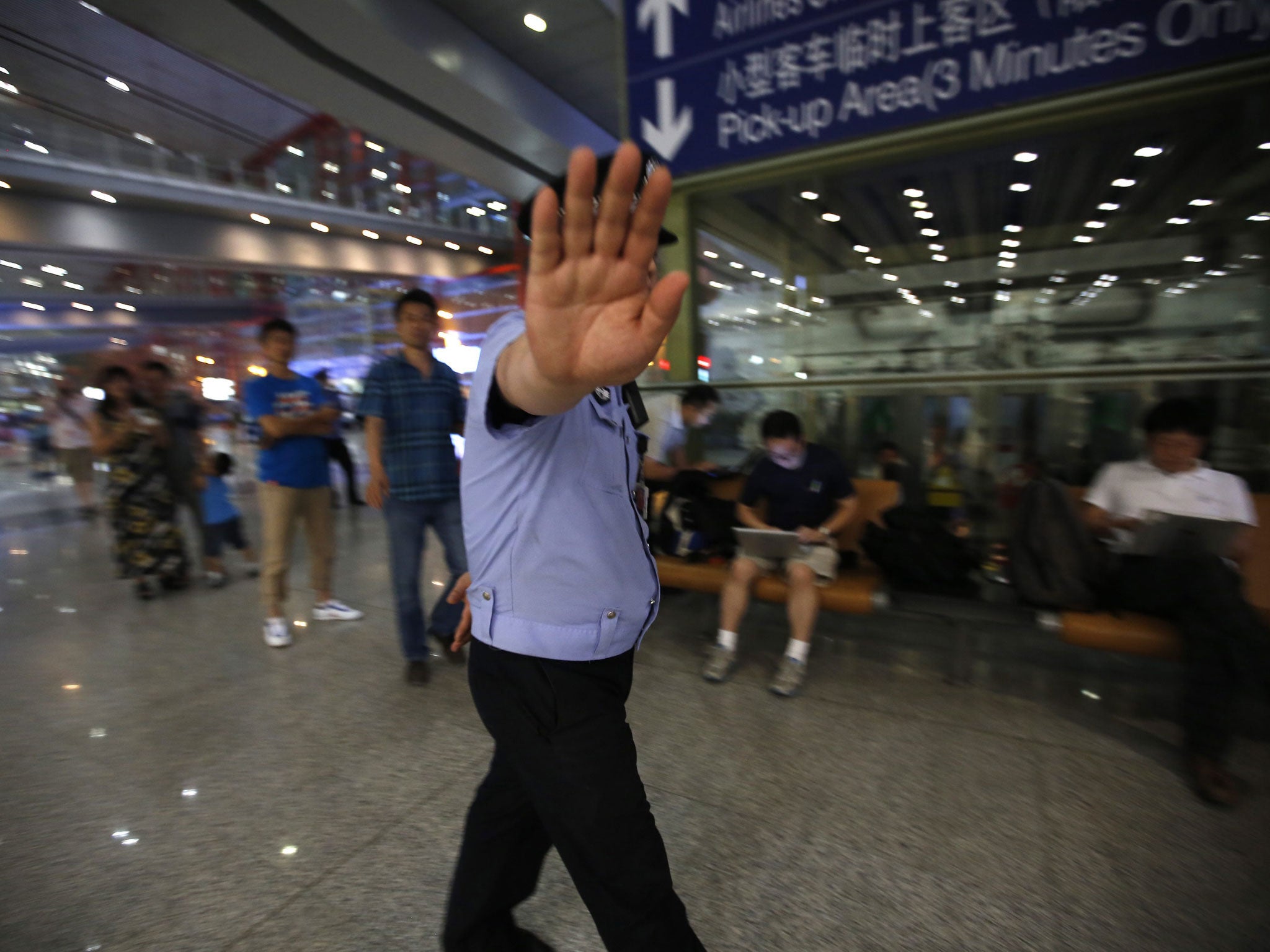China's secret police to take part in UK seminar - and no mention of human rights allowed
Seminar for officials to be held at Cambridge University features 24-member delegation from notorious Ministry of Public Security

Your support helps us to tell the story
From reproductive rights to climate change to Big Tech, The Independent is on the ground when the story is developing. Whether it's investigating the financials of Elon Musk's pro-Trump PAC or producing our latest documentary, 'The A Word', which shines a light on the American women fighting for reproductive rights, we know how important it is to parse out the facts from the messaging.
At such a critical moment in US history, we need reporters on the ground. Your donation allows us to keep sending journalists to speak to both sides of the story.
The Independent is trusted by Americans across the entire political spectrum. And unlike many other quality news outlets, we choose not to lock Americans out of our reporting and analysis with paywalls. We believe quality journalism should be available to everyone, paid for by those who can afford it.
Your support makes all the difference.China's notorious Ministry of Public Security is to take part in a seminar at Cambridge University in next month, where academics will be barred from asking questions about human rights issues.
The event at Trinity Hall, organised by the Centre for Business and Public Sector Ethics, a charity which is not connected to the university, features a 24-member delegation from the ministry.
The ministry is in charge of China's police force and is responsible for its massive national surveillance apparatus, which monitors dissidents and suppresses dissent.
The list of delegates, seen by The Sunday Times, includes Fan Ke, who works for the ministry's Third Research Institute. The institute shares space in Shanghai with Unit 61398, which has been named as being responsible for cyber attacks on western governments.
Another, Tian Zhenyu, does computer information management for the public security ministry in Liaoning province, next to North Korea. Police there, controlled by the ministry, are known for tracking down refugees and sending them back to the DPRK to face imprisonment or death.
Two other delegates, Zeng Xianjiang and Pan Jinwu come from the far west province of Xinjiang, which has carried out a brutal suppression of the Muslim Uighur minority there, including arrests, disappearances and executions.
One academic, Professor Anthony Glees, director of the Centre for Security and Intelligence Studies at the University of Buckingham, had been due to speak at the seminar but pulled out when he was told he was not allowed to raise issues about China's poor human rights record and its cyber warfare activities.
He told The Sunday Times: "Like any academic I'm very glad to speak to anybody about what I know about the methods and the successes of the British intelligence community."
"But to pass these on without ethical qualification to members of a totalitarian secret police would be absolutely outrageous. They need to be told about their human rights abuses in China and Tibet and the massive cyberspying that the Chinese have been engaged in."
Sir Malcolm Rifkind, chairman of the intelligence and security committee, said: "In the case of China, their security apparatus and their intelligence agencies don’t just deal with problems with terrorism and with criminal behaviour. They’re used to suppressing political dissent.
"So there’s a fundamental difference between intelligence agencies and issues of that kind in an authoritarian state and democratic state. And these issues should be brought into the open. So I'm certainly disappointed that this academic group doesn't feel able to allow issues involving human rights to be raised because they’re very central to the role of intelligence and security in China."
Join our commenting forum
Join thought-provoking conversations, follow other Independent readers and see their replies
Comments